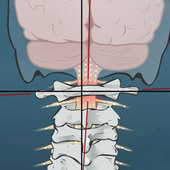Diets and fads seem to come and go, and one of the newest “trends” to be making headlines is intermittent fasting. It is not so much a diet as it is a schedule of eating; it isn’t so concerned with what you are eating as it is with when you are eating. The most common schedule is a 16:8 rule in which you fast for 16 hours and eat only during an 8-hour window.
 The benefits claim to include weight loss, increased energy, a more efficient metabolism, increased fat burning, and better sleep. What is interesting is the actual physiological benefit of intermittent fasting, which we will explore below.
The benefits claim to include weight loss, increased energy, a more efficient metabolism, increased fat burning, and better sleep. What is interesting is the actual physiological benefit of intermittent fasting, which we will explore below.
There are many different systems in our bodies that need to work in tandem to ensure that we are expressing optimal health at any given time. One of these systems is the glymphatic system. This system is largely responsible for cleaning up our cerebrospinal fluid (CSF) - the fluid that bathes your brain and spinal cord and ensures delivery of oxygen and appropriate nutrients to those very sensitive tissues. Our brain utilizes about 70% of the available oxygen and glucose in our systems and is similar to a big factory inputting and outputting huge amounts of energy. As with any factory producing a huge amount of product, this also comes with the cost of large amounts of by-products, which is what the glymphatic system is responsible for cleaning up. After being carried away by the glymphatics, all the toxins get further cleared away by the liver, another organ involved with filtering and cleansing wastes from our body. The liver filters not only the CSF, but also toxins from the food we eat, the liquids we drink, and any other environmental nitty-gritty that ends up in our systems. Many experts believe that intermittent fasting can be hugely beneficial for your glymphatic system and liver because it encourages you to not eat after a certain time of day. Many North Americans eat their largest, and most protein-rich meal at the end of the day - this creates a large burden for your liver to need to process all of that food, which then backs up the work of the glymphatic system. By not eating after, say, 4:00 pm, your system has a much easier opportunity to actually deep clean the CSF during the evening and while you are sleeping, which essentially is thought to provide a more appropriate environment for your brain to heal and reboot. Brain health is increasingly becoming a largely discussed component of long-term health, particularly when it comes to preventing cognitive decline and compromise, and so ensuring that you are doing everything you can to help protect the integrity of your brain should be a priority.
Exploring the idea of intermittent fasting could be of benefit not only for managing your weight and/or gaining more energy but also for the long-term health of your brain and mind. Consider discussing it with a trained health care provider if it is something that holds interest for you, or if there are any other brain-health topics that you have questions about.
Written by Dr. Mylène Hopf



